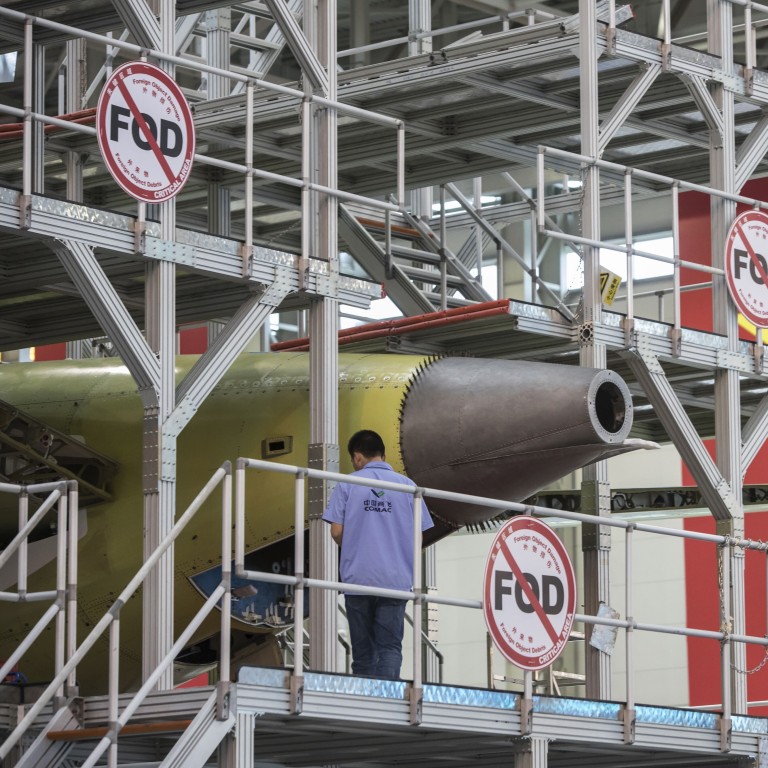
Rush of US sanctions on China in last days of Trump White House
- Measures include investment ban on Xiaomi and Comac and travel bars on unspecified Chinese officials and families
- Beijing responds with accusations of bullying and double standards
The Chinese foreign ministry responded on Friday by accusing the administrations of “double standards” and “bullying”.
“The long history of the US’ military-civilian fusion policy goes back to before the first world war,” ministry spokesman Zhao Lijian said.
“Many of the US’ multinational companies are the product of such military-civilian policy.”
Zhao added that China would take necessary measures to protect the interest of its companies.
South China Sea: the dispute that could start a military conflict
In addition, the US Commerce Department put China’s largest offshore oil producer, China National Offshore Oil Corporation, on another list that bars the company from American supplies and technology. The company was already on the Defence Department’s list.
Zhao said the US sanctions were hegemonic and “gross interference in China’s domestic affairs”.
“It is entirely within China’s sovereign rights to have structures on our own territory,” he said, referring to facilities on artificial islands in the disputed waters.
“Imposing sanctions on Chinese companies and individuals who have taken part in the process is gross interference in China’s domestic affairs.”
He added that the US, which has refused to sign the United Nations Convention on the Law of the Sea, had no right to criticise China on the issue.

00:55
China says US sanctions of firms over South China Sea constructions are illegal
With less than a week before Biden takes office, the Trump administration has made a series of last-minute moves that observers say is part of an attempt to cement its legacy on China policy following four years of steady escalation in tensions between the world’s two biggest economies.
Under Trump, the White House has pressured Beijing on a wide range of issues from trade to human rights issues in Xinjiang, Tibet and Hong Kong. It has also rejected all of China’s maritime claims in the South China Sea.
Earlier this week, the National Security Council declassified a report that lays out the Trump administration’s strategy in Asia, including accelerating the rise of India to counter China.
The Department of Homeland Security also unveiled a strategic action plan that details a strategy to “confront the full spectrum of Chinese threats to the homeland”, including recommendation to tighten visa approval for Chinese citizens.
Zhao said the plan was based on “lies” meant to smear China.
“The US side should stop peddling lies and ... refrain from more actions that harm China’s interests,” he said.
US sanctions Chinese officials, executives over ‘coercive behaviour’ in South China Sea
Yang Hua, chairman of the Marine Law Research Association, a think tank under the Shanghai Law Society, said Trump would continue his efforts to put pressure on China.
“Even after leaving office, Trump will spare no effort to unite anti-China forces among other countries to undermine China-US relations,” Yang said.
“I think China can take some countermeasures, such as imposing travel bans on American officials who undermine peace and stability in the South China Sea.”
Additional reporting by Rachel Zhang

